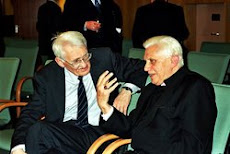Carl Sachs wrote here:
"Ali, you wrote that the "factual' can produce what is not only sharply distinct from it but also in some sense antithesis of it." What bothers me about this way of framing the issue is this: is the opposition between sapience ("Reason") and sentience ("Nature") constitutive of the distinction? Or is rather that we moderns have inherited a certain tradition, given inflection and expression by Plato, Descartes, and Kant, that construes this distinction as an opposition? If the latter (as I suspect) then the very notion of an opposition between Nature and Reason might itself be part of the philosophy of the subject that we need to overcome."
First let me say that maintaining the right balance between ‘continuity’ and discontinuity’ is a tricky matter. As Brandom puts it nicely:
“Theories that assimilate conceptually structured activity to the nonconceptual activity out of which it arises (in evolutionary, historical, and individual-developmental terms) are in danger of failing to make enough of the difference. Theories that adopt the converse strategy, addressing themselves at the outset to what is distinctive of or exceptional about the conceptual, court the danger of not doing justice to generic similarities.” (Articulating Reasons, p. 3).
Carl, perhaps you are right to object to my use of the term anti-thesis here. I think I am happy to drop it. Thank you for that. My intention however was to emphasise on the one hand the clear distinction that Habermas makes between facticity and validity, a distinction which for him is the corner stone of modernity. Thus he claims that in mythic societies we cannot find a concept of validity which is not confused with the “admixture of empirical efficacy.” (see TCA I, chapter 1 under the discussion of mythical views.). On the other hand Habermas also stresses the need for a thoroughgoing detranscendentalisation that does away with all kinds of attempts to ground distinctions like facticity and validity in metaphysical or ontological dualisms. From this the conclusion I draw is that the only way to combine the above two stances is to argue that the distinction between facticity and validity emerges from ‘within’, i.e. from the factual, taken in broad terms. As Habermas puts it:
“Transcendental reason has come down from its supersensible pedestal and has sedimented itself in the pores of the practices and forms of life of actual linguistic communities. As a result of this cultural embodiment of reason, the transcendental distinction become less clear. However, they do not disappear entirely. The distinction between the realm of reason and the realm of appearances returns in detranscendentalized forms.” (TJ: 218).
Clearly the conclusion I draw above is drawn by Habermas himself in the above quote and at several other places. My only contribution (if there is any) is to put the whole issue into sharp focus (which it has not yet received in my opinion).
Subscribe to:
Post Comments (Atom)





No comments:
Post a Comment